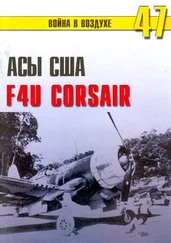‘Get in line, tallest to the rear!’ Yakup demanded, padding barefoot down the gangplank. Bourdon hesitated for a moment and opened his mouth to speak. Immediately the rowing master casually cuffed the pickpocket on the side of the head. The blow seemed lightweight, but the Frenchman gave a gasp and nearly fell. ‘You heard what the comite said, no chattering.’ Confused as to what they were meant to do, the prisoners milled around until they were in some sort of order. Hector, smaller than most of the prisoners, found himself near the head of the little column which followed the rowing master up the gangplank and on to the St Gerassimus .
His first impression was that the galley was identical to Turgut Reis’s Izzet Darya , but then he realised that St Gerassimus was less ornate, more workmanlike. The blue and white canopy was held above head level on posts and under it three or four dozen of her crew were hard at work. Some were scrubbing and cleaning the woodwork, others were industriously splicing and mending ropes, and one squad had formed a human chain to empty one of the vessel’s stores, handing up boxes and bales through a hatch and stacking them neatly amidships. Hector followed the rowing master almost halfway up the central gangway, heading towards the galley’s bows, before he identified what was unusual. There were upwards of sixty men aboard, yet there was no sound of human voices. The men were working in total silence. Whenever one of them looked up from his chores to glance at the new arrivals, he took only the quickest glance before hurriedly looking back down again at his work. The quiet aboard St Gerassimus was eerie.
Yakup came level with the last half-dozen oar benches, halted, and turned to face the prisoners. As they advanced towards him in single file along the narrow gangway, the rowing master pointed to one side or the other, indicating to which bench each prisoner should go. Hector stepped down from the gangway to his bench and, looking back, saw that his new overseer was distributing the prisoners in balanced groups, so that each rowing bench had at a mix of large and small oarsmen, old and young. The last man assigned to each bench was an odjak. ‘Tomorrow you begin to learn. Now you clean,’ grunted the rowing master. He pulled up the plank which covered the gangway. Beneath was a cavity which served as a locker. From it Yakup extracted a long-handled deck brush and an iron scraper which he tossed to the prisoners. ‘Clean!’ Hector noticed the padded leather covering on the bench where he stood was stained. It appeared to be dried blood. The bulwark next to him was newly patched. Someone had made a temporary repair where, by the look of it, a cannonball or a hail of grapeshot had damaged the vessel.
‘Pretend to be busy!’ hissed Bourdon out of the side of his mouth. The pickpocket had been assigned to a place on the bench beside Hector. ‘This is worse than I thought.’
‘What do you mean?’ whispered Hector, keeping his head down so that the rowing master could not see his lips move.
‘This is a ship of fanatics,’ answered Bourdon. ‘No booze, no rest, plenty of lash.’
For the rest of the afternoon Hector and the other prisoners worked in silence, scrubbing and cleaning the area around the benches they had been assigned. When they finished, they replaced the brushes, scrapers and swabs into the locker under the gangway, and stowed their spare clothing in the same space. Yakup, who had been hovering on the gangway, suddenly jumped down among them. Bending down he picked up a length of heavy chain lying under the oar bench. One end of the chain was fastened to a beam, and now he threaded the loose end through the leg irons of each man, tethering them to their place. Finally he secured the end to a metal hoop with a heavy padlock. They were chained in place. Pointing to the central gangway he said ‘ Coursier! ’ Next he slapped the padded seat of the oar bench with his hand and growled ‘ Banc, banc trois! ’ Placing his foot on a removable board raised about a foot off the deck, he declared ‘ Banquette! ’ Using this board as a step, he braced his other foot on a wooden bar attached to the oar bench in front, which he called the ‘ contre pedagne ’. He mimicked rising up with both hands extended as if holding an oar, then falling back with all his weight. ‘Vogue! Tomorrow vogue!’
The sound of singing interrupted the demonstration. Hector turned to see a column of galeriens shuffling along the gangway. All of them wore leg irons, and the chains between their ankles were looped and held up on their large metal belt hooks. They were singing a hymn as they advanced, and they must have been the galley’s regular oarsmen for they made their way straight to their allocated benches and sat down, five men to a bench. The leader of each group then leaned down and picked up the deck chain by their feet, passed it through their ankle fetters and meekly held up the loose end so that an argousin could come forward and attach a padlock. Only then did the galerians end their hymn, and wait silently.
A whistle sounded. At the far end of the galley, a figure appeared on the stern deck. It was Piecourt again. ‘A galerien has uttered execrable blasphemies against the Virgin Mary and all the saints in Paradise,’ he said. His soft voice contained a tone of menace which Hector found unsettling. Piecourt descended the short ladder down from the stern deck, and walked along the gangway until he was about a third of the way down the vessel. Turning towards the port side he ordered, ‘Quarterol, strip. Vogue avant administer punishment. Black bastinado.’ Hector watched as the fourth man along the nearest oar bench stood up and began to peel off his shirt. The man’s hands were shaking. An argousin released the padlock on the bench chain so that the half-naked galerien could clamber up on the gangway. There he lay down, face to the deck. His arms and legs were seized and held firm by the oarsmen on the nearest benches so that he was stretched out, spreadeagle across the walkway. Slowly the largest oarsman from his bench climbed up and stood over his prostrate companion. Piecourt handed him a length of tarred rope. Then Piecourt stepped back and waited. The man hefted the rope in his hands. Hector could see that the rope flexed but did not curl. The dried tar, he concluded, must make it almost as stiff as a wooden stave. ‘Strike!’ ordered Piecourt. The oarsman took an upward swing with the rope and brought it down on the victim’s back with all his strength. From where he sat Hector could see the red slash where the blow had cut the flesh. ‘Strike again!’ snapped Pie-court, expressionless. Only after twenty strokes and the victim appeared to have fainted, did the premier comite stop the punishment. ‘Send for the barber surgeon. Vinegar and salt. Then put him in the cable locker till he heals.’
‘Doesn’t want the poor bastard to get gangrene and die,’ muttered Bourdon. ‘They never waste a trained oarsman.’
Hector had been feeling sick to his stomach. ‘Does that happen often?’ he enquired quietly.
‘Depends on the premier comite,’ Bourdon told him. ‘Don’t let it put you off your food. That should be next.’
Another whistle sounded, and this time it signalled the distribution of the evening meal. A small kitchen had been set up on the port side, where the eighteenth bench had been removed. There three galeriens were tending a large cauldron of soup. This broth was now ladled into small buckets and carried along the coursier by trusted galeriens, who slopped the broth into wooden bowls held up by the chained prisoners. Another trusty followed, handing out fist-sized loaves of bread. When the food arrived at Bench Three where Hector waited, he noticed that the big odjak seated nearest to the gangway received a larger portion. Beside him Bourdon whispered, ‘Don’t complain. The vogue avant always gets a larger helping than the others. It’s to keep up his strength. You’ll not begrudge it, I can promise you that. The vogue avant is the key man on the rowing team.’ The pickpocket bit into his bread. ‘At least the food’s good aboard this ship. Something to be thankful for.’
Читать дальше








